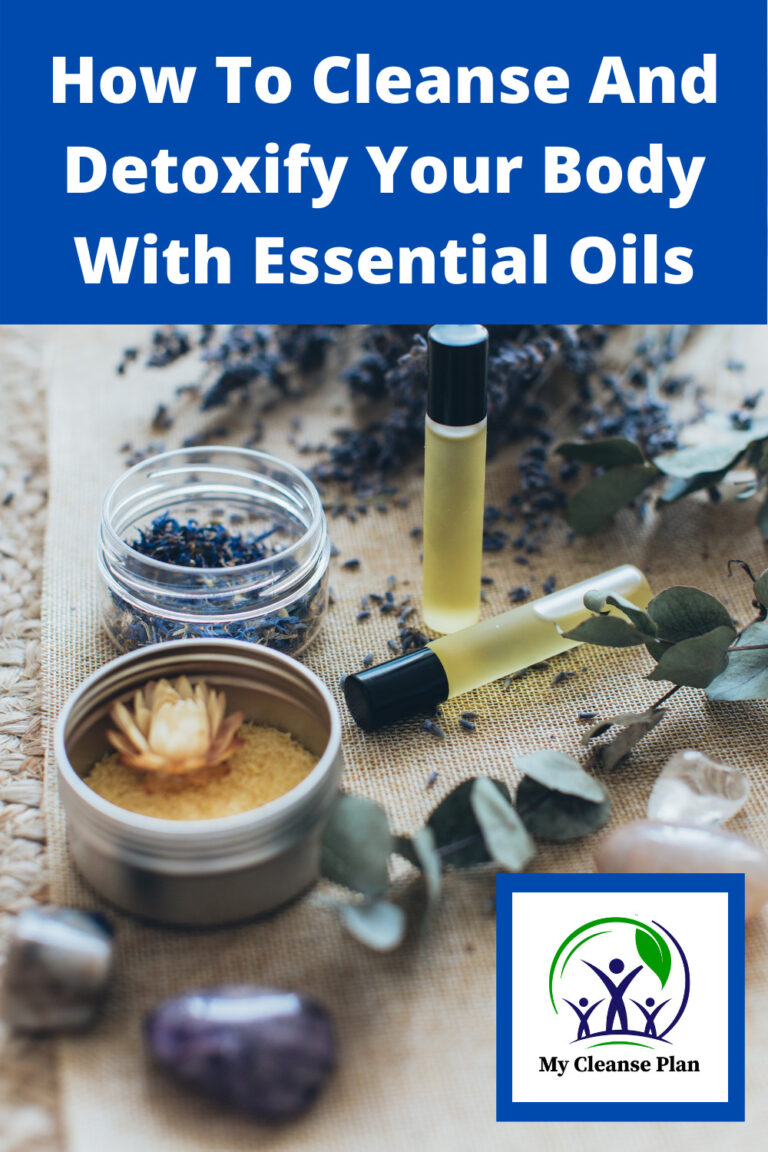Detox Cleansing And Improved Sleep Quality
Detox cleansing can significantly improve sleep quality by removing toxins, balancing hormones, and promoting relaxation, leading to more restful and restorative sleep.
Key Takeaway
- Hormone Regulation: Detox cleansing helps in regulating hormones, which is vital for maintaining healthy sleep patterns. Toxins can disrupt the production of sleep-related hormones such as melatonin, leading to insomnia or poor-quality sleep. By eliminating these toxins, the body can restore its natural hormonal balance, promoting more consistent and restful sleep. Hormonal regulation also supports the body’s circadian rhythm, making it easier to fall asleep and wake up at the right times.
- Reduction of Inflammation: Inflammation caused by toxins can affect sleep quality. Detox cleansing reduces inflammation in the body, which can alleviate pain and discomfort that might otherwise disrupt sleep. A diet rich in anti-inflammatory foods such as fruits, vegetables, and whole grains supports this process. Reduced inflammation also enhances overall health, further contributing to better sleep.
- Stress Reduction: Stress is a major factor that affects sleep quality. Detox cleansing can help reduce stress levels by eliminating toxins that trigger the release of stress hormones like cortisol. Lower stress levels facilitate a more relaxed state, making it easier to fall asleep and stay asleep. Practices such as yoga and meditation, often included in detox programs, can also promote relaxation and improve sleep quality.
- Improved Digestion: Digestive health is closely linked to sleep quality. Toxins can cause digestive issues such as bloating, indigestion, and acid reflux, which can interfere with sleep. Detox cleansing supports better digestion by removing these toxins and promoting the growth of healthy gut bacteria. A healthy digestive system can prevent nighttime discomfort, leading to uninterrupted and more restful sleep.

Detox cleansing is a concept that has captured the interest of health enthusiasts around the world. It’s a regimen aimed at purifying the body from toxins acquired from food, environment, or lifestyle choices. While the approaches vary, the ultimate goal is to revitalize the body’s natural detoxification systems.
I’ve also noticed that sleep, something so fundamental to our well-being, can be profoundly impacted by our internal balance. It’s no secret that not getting enough rest leaves us feeling irritable and sluggish, but it goes deeper. Sleep disturbances can have a snowball effect, potentially leading to chronic health issues.
And here’s a thought I find intriguing: Could there be a possible synergy between detox cleansing and sleep quality? The hypothesis is that by alleviating the body’s toxic burden, we might support our natural restorative processes, which peak during sleep. In the next section, I’ll explore how getting enough shut-eye is crucial for our innate detox system and how detox cleansing might play a supporting role.
Related Article: Why You Should Cleanse Your Body
Understanding the Importance of Sleep for Body Detoxification
Sleep isn’t just a passive activity; it’s critical for our body’s healing and renewal. Think of it as overnight maintenance, ensuring we’re ready for the next day. But there’s more. During restful sleep, our body conducts its own ‘cleansing routine,’ actively removing waste that accumulates throughout the day, especially in the brain.
This nightly clean-up is attributed to a system you might not have heard much about: the glymphatic system. It’s the brain’s dedicated waste clearance pathway, and it works predominantly while we slumber. Cerebrospinal fluid flows through brain tissue, flushing away harmful proteins and toxins that could later contribute to neurodegenerative diseases if left unchecked.
Scientific research underscores the significance of sleep for detoxification. A study from the National Institutes of Health found that the brain’s waste removal system is up to ten times more active during sleep. This correlational data suggests a substantial link between sleep quality and our body’s ability to detoxify effectively.
Next, we’ll explore various detox cleanses. However, it’s vital to remember that while certain practices and diets can complement the body’s natural detoxification, the foundational detox — a good night’s sleep — is irreplaceable.

Related Article: The 7 Best Detox Teas to Help Your Immune System
Types of Detox Cleanses and Their Purported Benefits
When I talk about detox cleanses, you need a roadmap of the options available. There’s no one-size-fits-all answer, and while some swear by one method, others might find it less effective or even overwhelming. Common detox methods include dietary changes, fasting regimes, and particular supplements.
A dietary detox often suggests a focus on whole, unprocessed foods. Think fruits, vegetables, nuts, seeds, and plenty of water. The idea here is to give your digestive system a break from handling heavy or potentially irritating substances, while supposedly enhancing nutrient absorption and toxin elimination.
Fasting, whether intermittent or lasting days, is another form embraced by detox enthusiasts. It’s about giving your body a break from digestion so that it can focus on healing and self-cleaning. Don’t jump into fasting without medical advice, especially if you have health concerns.
Supplements used for detox cleansing vary widely, from herbal concoctions to vitamin complexes designed to support liver and kidney function. The claims here can be bold – enhanced metabolism, better skin, and, yes, improved sleep are all among the purported benefits.
But it’s not a commitment to be taken lightly. There can be risks – especially with more extreme approaches. Navigating detox claims requires a bit of skepticism. Your body is already equipped with a powerful detox system: your liver, kidneys, and colon work hard to process and eliminate toxins regularly.
It’s critical to remember the importance of balance. Extreme detox methods can sometimes do more harm than good. Realistic expectations are key. Sweeping health transformations overnight are not just unlikely; they’re also potentially unsafe.
Related Article: Can You Really Improve Your Immune System With a Cleanse

How to Enhance Sleep Quality Through Detox Cleansing
Improving sleep quality doesn’t just hinge on what you do right before bedtime. It’s also about how you treat your body throughout the day. Detox cleansing, when done correctly, can set the stage for a night of restorative sleep.
A detox cleanse doesn’t need to be aggressive to be effective. In fact, incorporating simple, detoxifying habits can go a long way. Staying hydrated, for example, helps flush toxins from your body and can prevent disruption of your sleep cycle. Similarly, cutting back on processed foods and increasing your intake of fiber-rich fruits and vegetables can improve digestion and consequently, possibly have a positive effect on your sleep patterns.
The food and drinks you consume can also play a significant role. Certain herbal teas, like chamomile or valerian root, have been appreciated for their sleep-inducing properties. Including these in your evening routine might help you wind down and prepare for sleep. Foods that are rich in magnesium, such as almonds or spinach, can also promote muscle relaxation and better sleep quality.
Mindfulness and relaxation are essential parts of detoxing for better sleep. Activities such as yoga, meditation, or even a simple evening walk, encourage relaxation and stress reduction. These practices not only support detox by aiding digestion and circulation but also prepare your mind for a peaceful night’s sleep.
As you move towards the conclusion of your detox routine at the end of the day, consider a quiet, darkened environment free from electronic devices. This can signal to your body that it’s time to wind down, setting you up for a deep and restful sleep, ready to greet a refreshed tomorrow. By acknowledging that good sleep hygiene begins long before your head hits the pillow, you empower yourself to make choices that enhance your overall well-being.
Related Article: 7 Best Liver Cleanses for Weight Loss

Real-Life Examples: Success Stories and Testimonials
I find it grounding to listen to the experiences of people who have walked the path I’m considering. When it comes to detox cleansing and improved sleep, many individuals have shared their journeys. It’s their practical insights that can often shed light on what we can realistically expect from these practices.
To give you a clear picture, I’ll recount the stories of several people who underwent detox cleanses and monitored their sleep quality. One such person, Alex, reported feeling more refreshed upon waking up after a month-long mild detox regimen involving increased water intake and reduced processed foods.
Emma, on the other hand, found that a two-week juice cleanse not only improved her sleep but also gave her a feeling of lightness and vitality during the day. However, it’s important to note she combined this with reduced screen time before bed and gentle yoga mycleanseplan.
Now, while anecdotes like these are inspiring, they come with a caveat. Not everyone will experience drastic changes, and some might find no benefit at all. It’s essential to look at the whole picture, including lifestyle and environmental factors, when evaluating the potential impact of a detox cleanse on sleep quality.
Experts generally advise against expecting overnight success. Instead, they encourage a long-term view that focuses on consistent, sustainable habits. As we discuss safe practices in the next section, keep in mind that detox cleansing is not a ‘one-size-fits-all’ solution but rather a potential piece in a larger puzzle of health and well-being.

Safe Practices and Expert Advice for Detox Cleansing and Sleep Improvement
I advise you to speak with a healthcare professional before beginning any detox regimen. It’s crucial to ensure that what you’re planning is safe for your unique health profile Mycleanseplan.
Sleep experts often suggest that creating a consistent bedtime routine and making your sleeping environment more comfortable are key steps to improving sleep quality.
Explore Also:
Creativehouseblog
Dietsheriff
Gigasecurehome
Nutritionists recommend focusing on a well-balanced diet rich in fruits, vegetables, lean proteins, and whole grains to support the body’s natural detoxification systems.
Remember, the goal is not just to ‘detox’ for a short period but to build long-lasting healthy habits that support both detoxification and sleep quality.
As with any health trend, it’s important to approach detox cleanses with thoughtfulness and care rather than looking for a quick fix. Improvements in sleep and overall well-being are most often seen with sustained lifestyle changes, not temporary diets or regimens.






